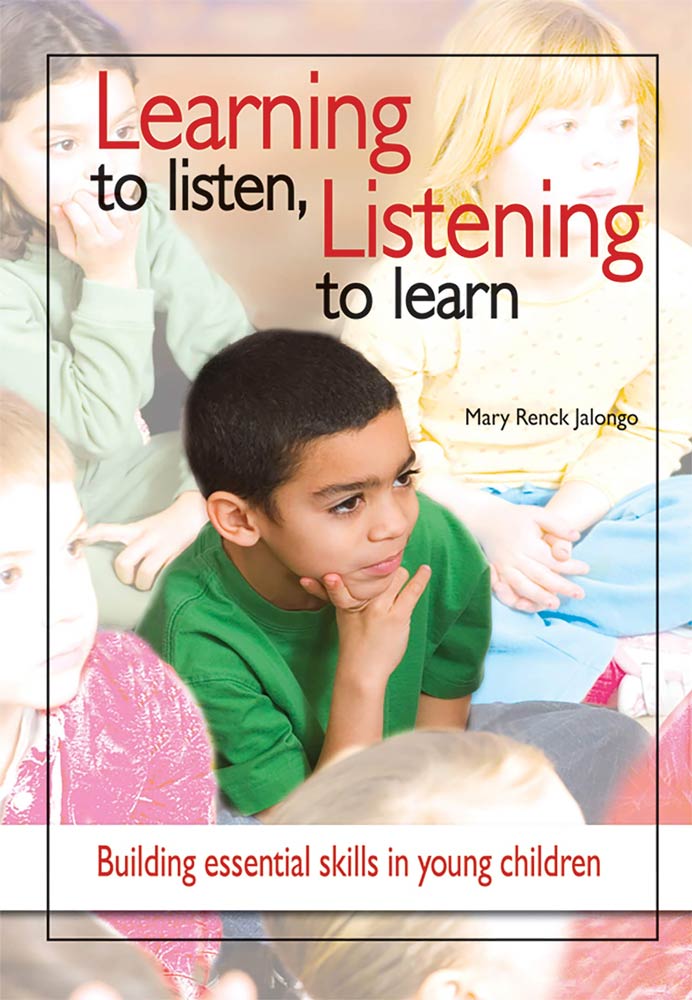
Learning to Listen, Listening to Learn: Building Essential Skills in Young Children – 2008 by Mary Renck Jalongo
This book can be a valuable resource for parents or educators interested in language development.
As we know, hearing and listening are not the same thing. We constantly hear different noises around us, but listening is an active process where we actually need to analyse and integrate what we hear. It is very important for children to develop active listening skills like this in turn will help them to develop their general language abilities.
A child’s listening skills depend on a number of different auditory competencies such as determining the direction from which a sound comes, recalling or memorising auditory information, the intonation of voice and being aware of rhythmic patterns. All this provides the basis for the development of expressive language and is important in the acquisition of vocabulary and early literacy.
Some strategies to train children´s listening skills are:
- Get down to the child’s level and make eye contact.
- Give a child your full attention. When you stop what you are doing and just listen, you lower the number of distractions and become a good model for your child to copy.
- Play guessing games with musical instruments or using other environmental noises such as animals or vehicle noises for example.
- Read stories aloud and when the child knows the story ask them to act it out while you are telling it. This activity can be great fun for everybody
- Always praise and reward your child for good listening strategies and for responding to instructions.
If you are interested in obtaining further insight and learn detailed activities you can put into practice, this book provides an easy and practical guide to improve your child´s early listening skills. A child can quickly improve through play and training in an aspect which will certainly help them academically and personally in the future.
Sinews MTI
Psychology, Psychiatry and Speech Therapy

